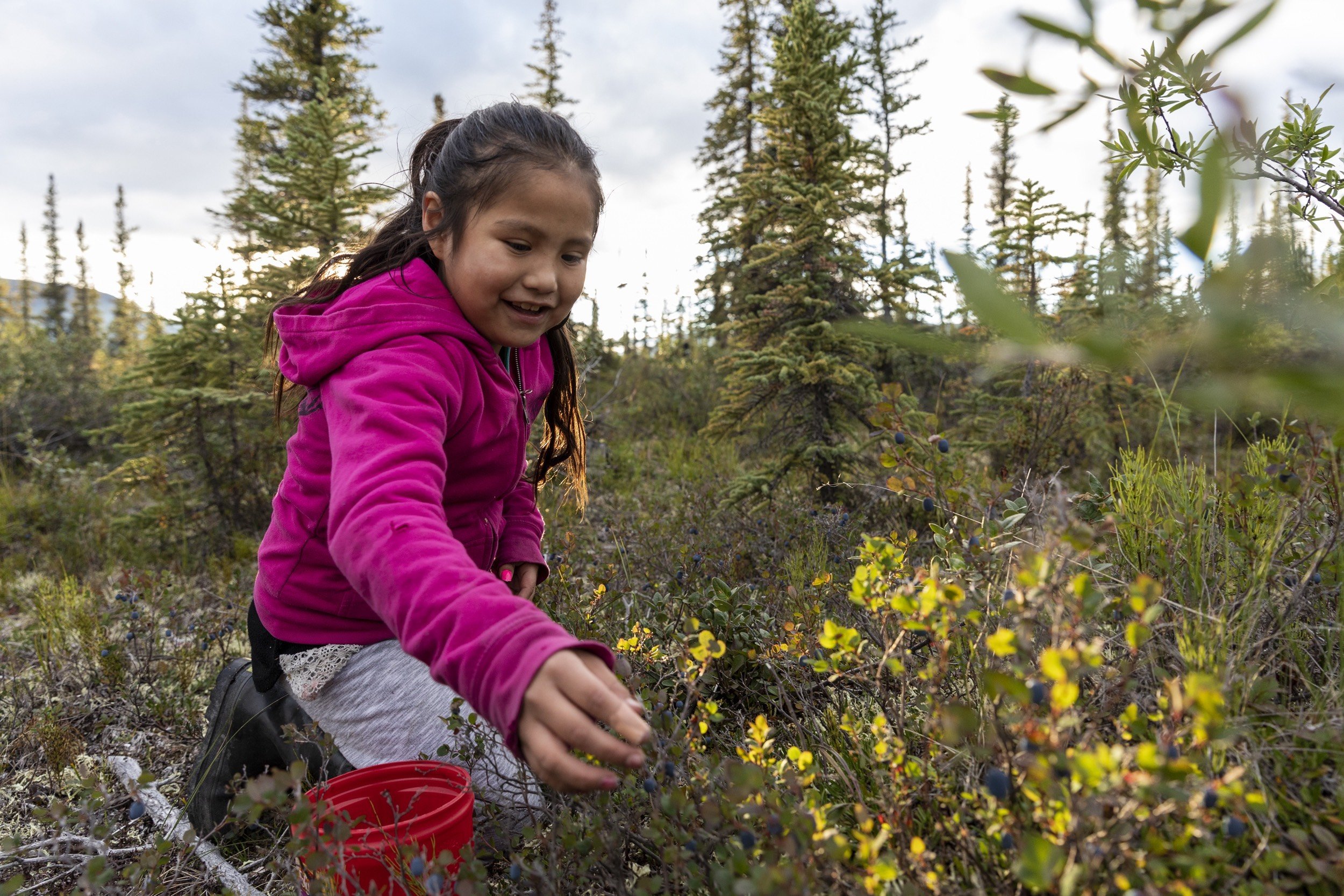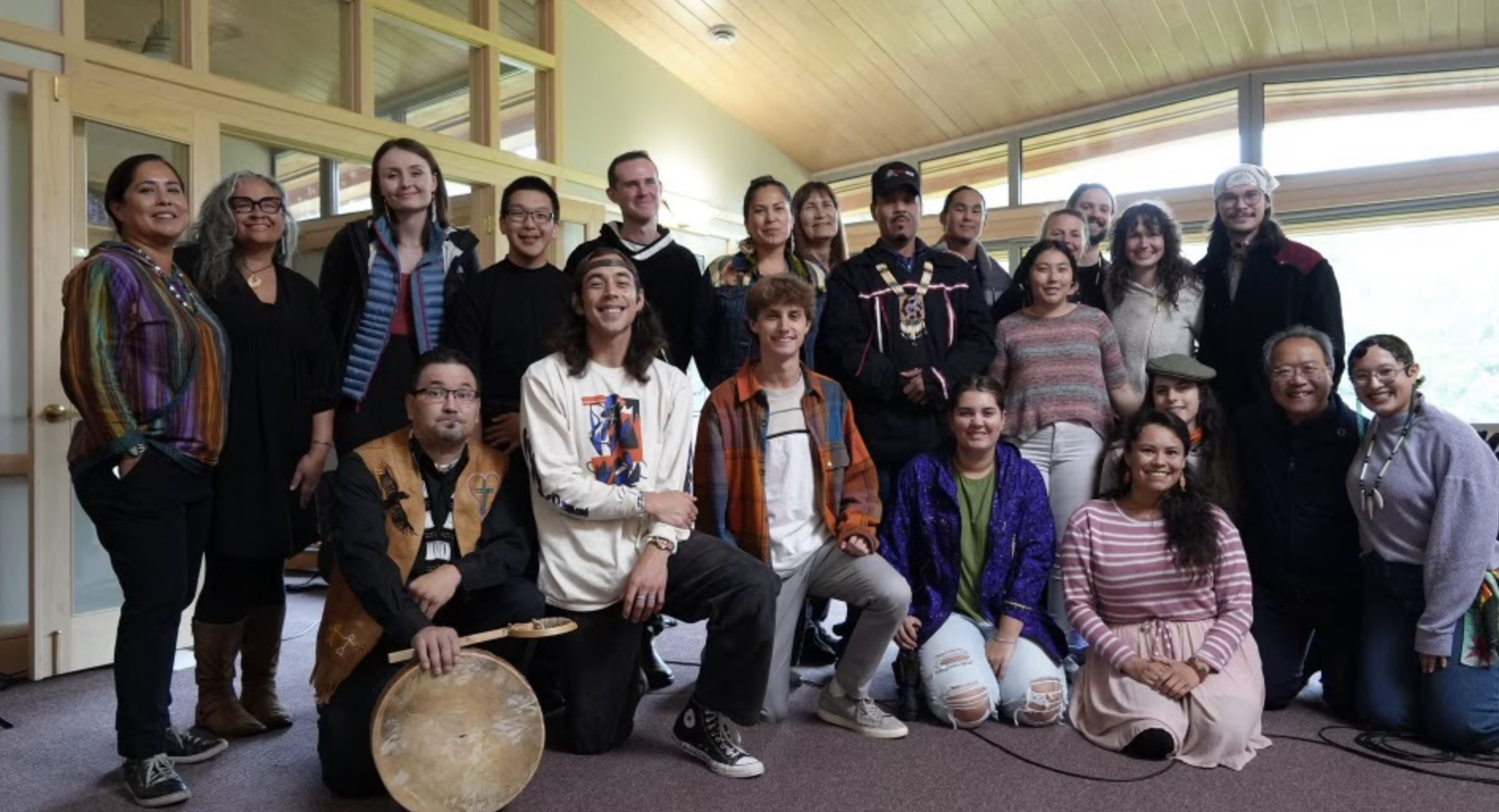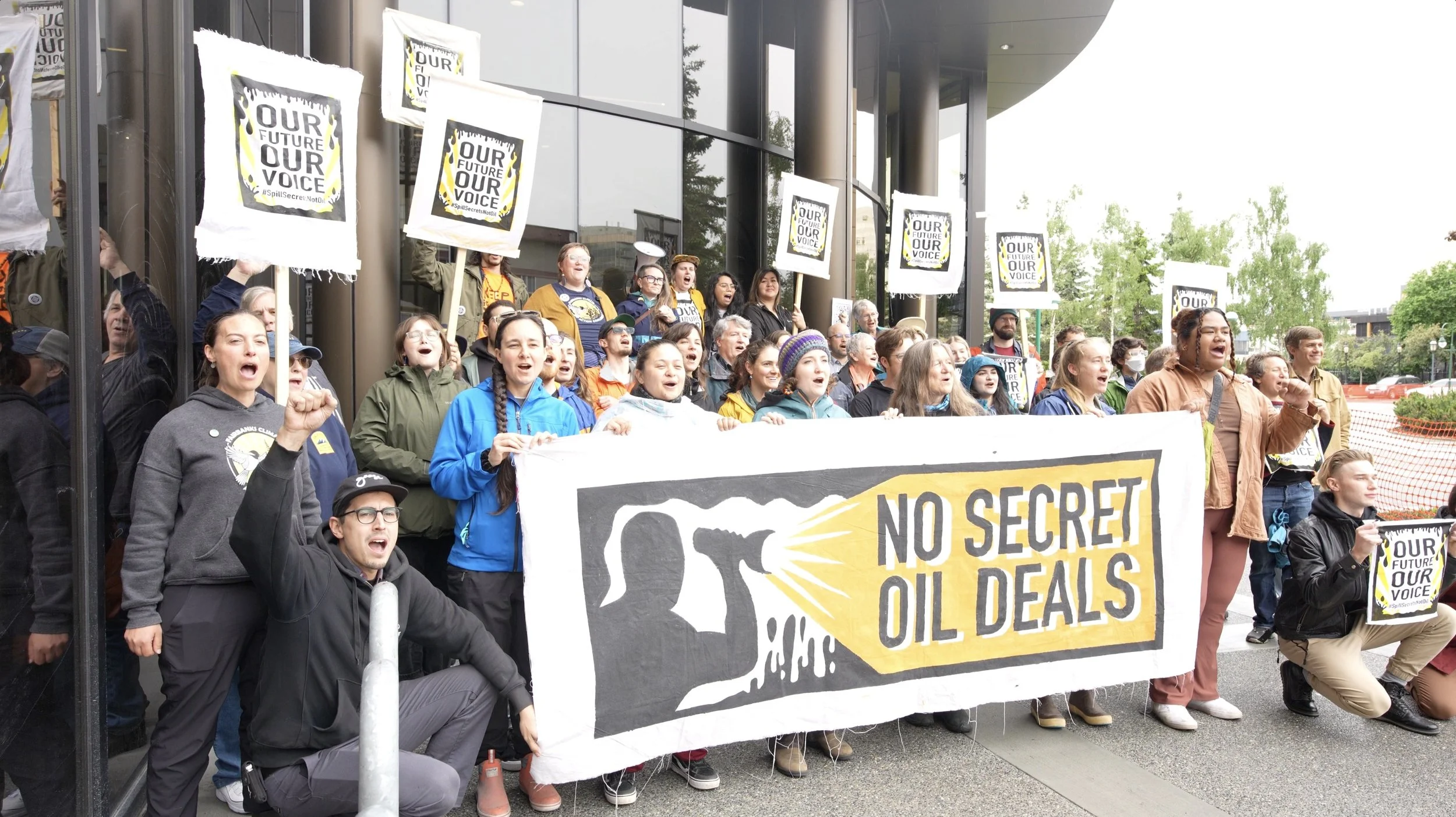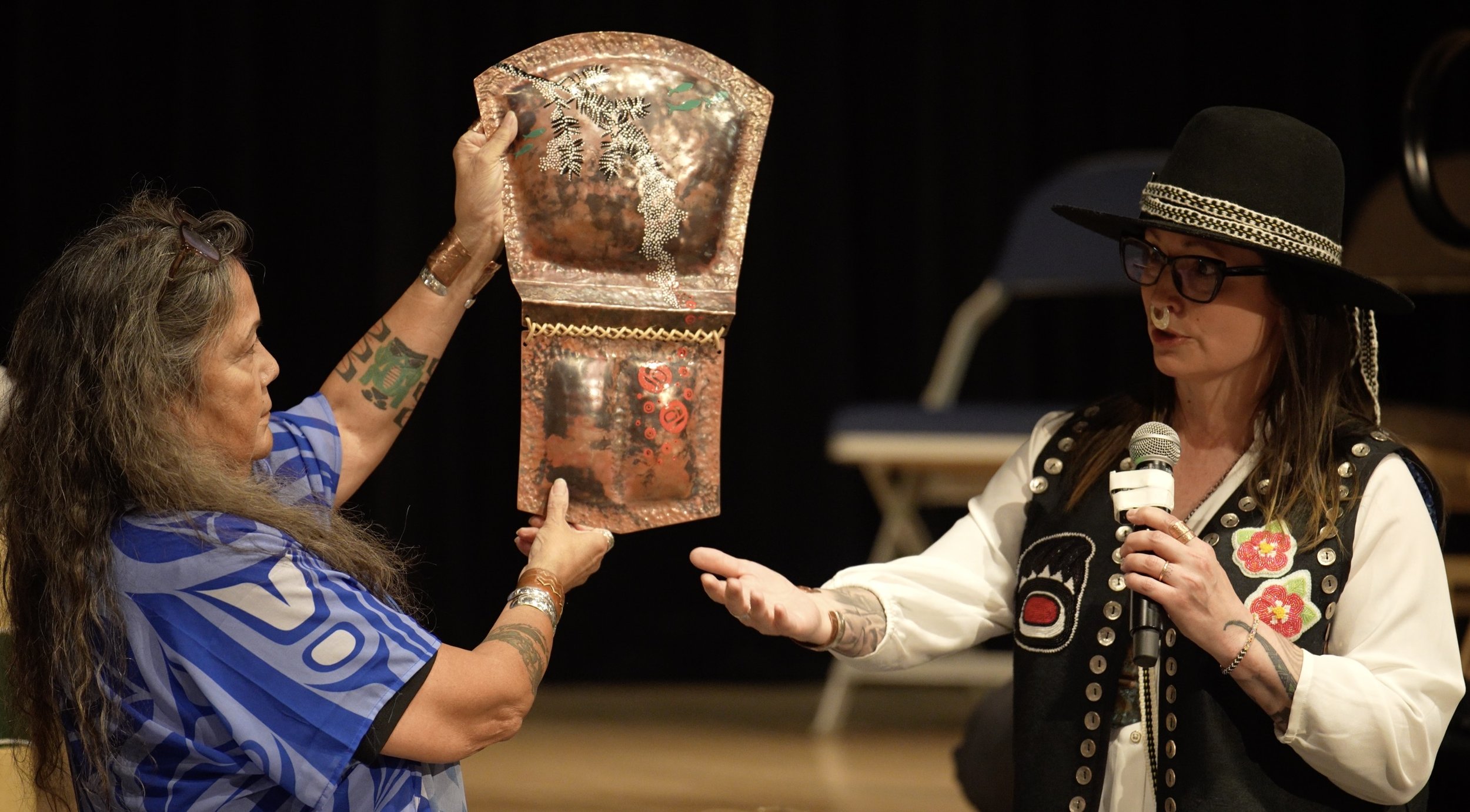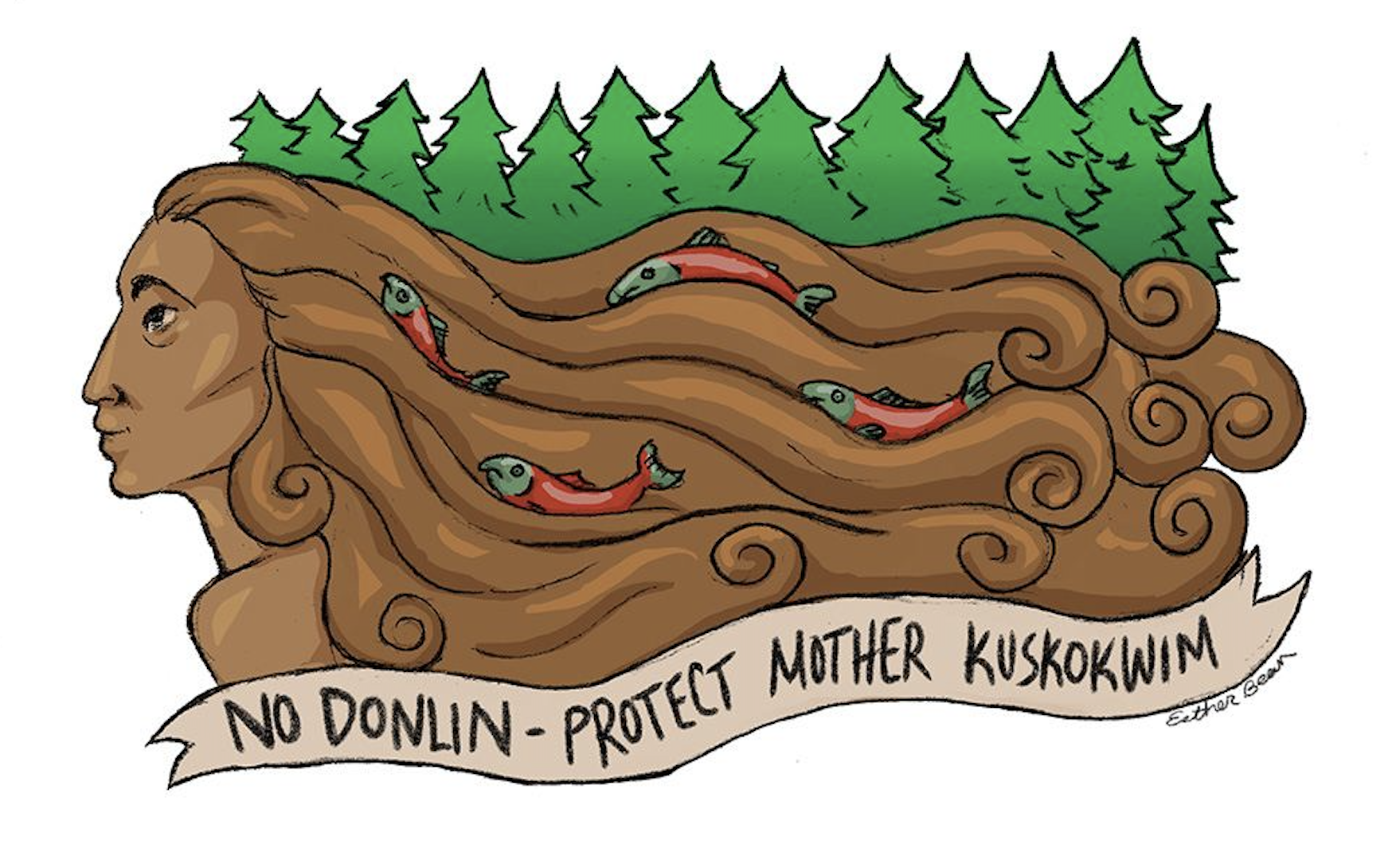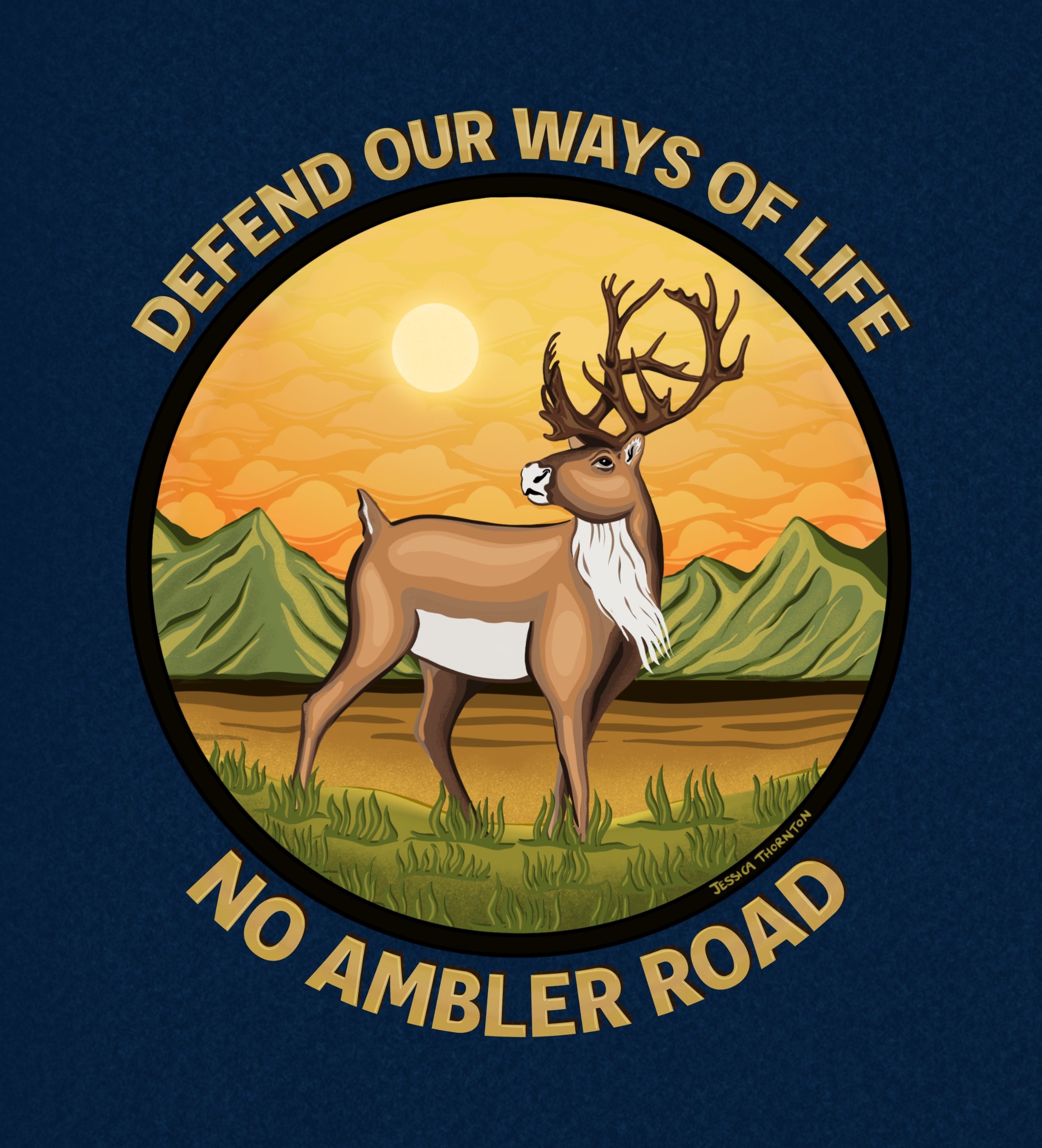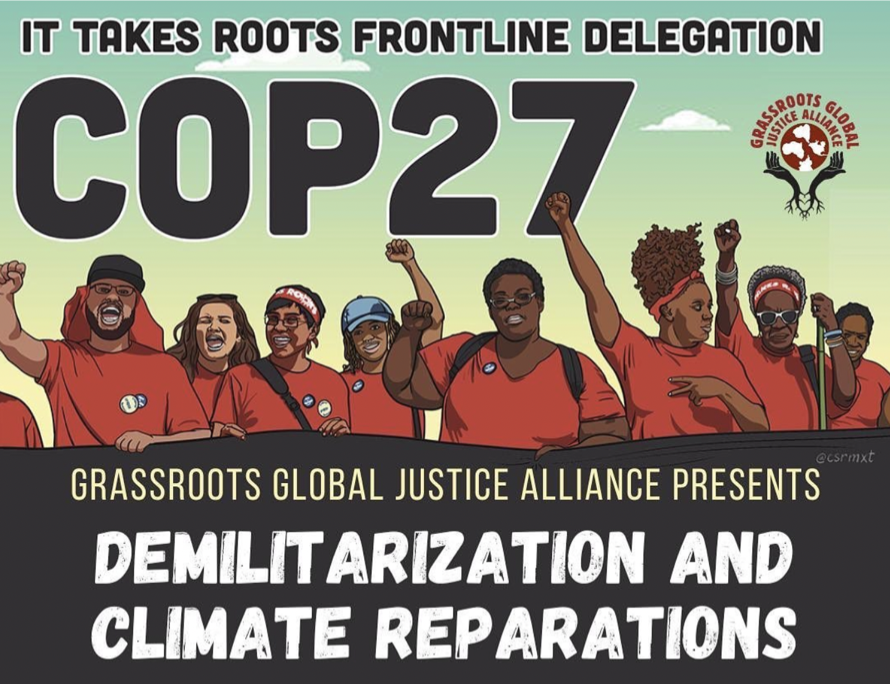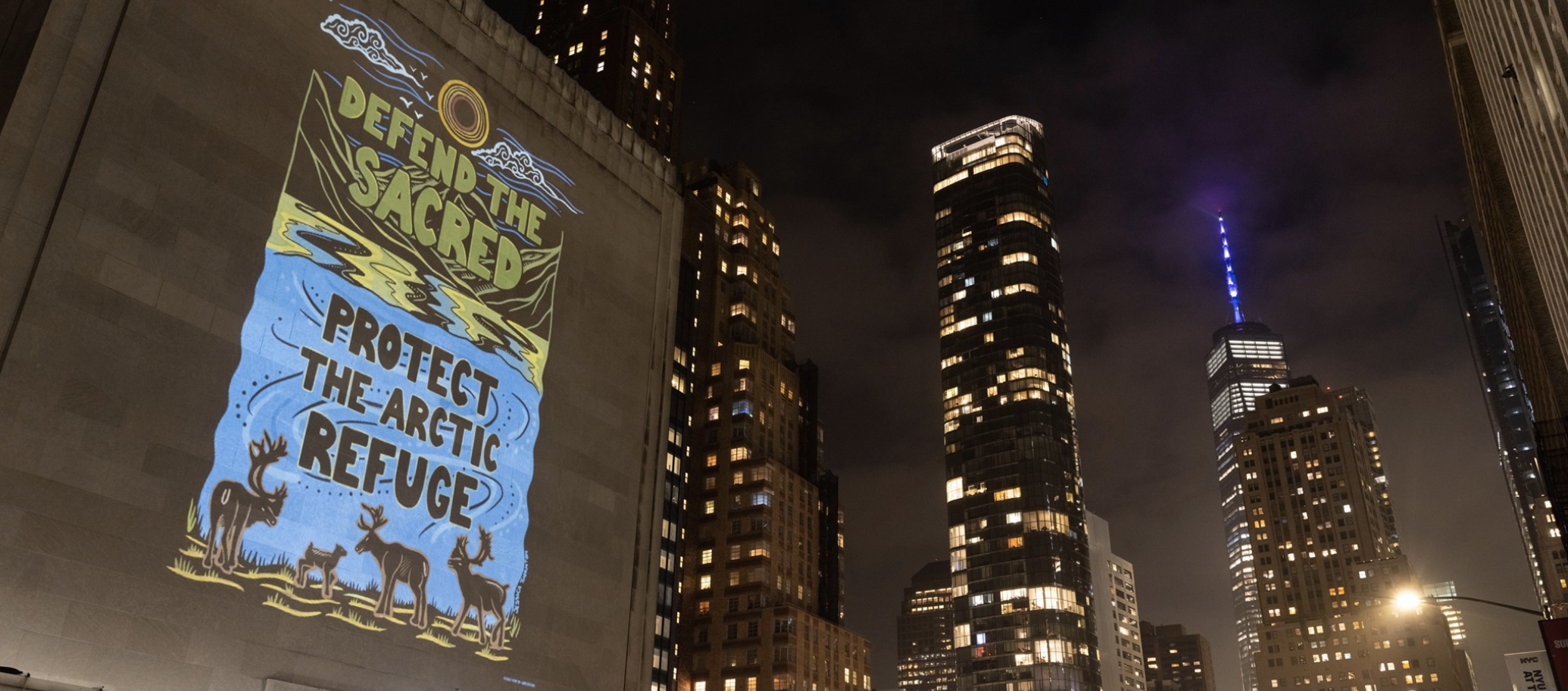
Native Movement Blog
Protect Tribal consultation and public process on Wetland Development
The Environmental Protection Agency (EPA) is seeking public feedback on a rule that will affect the permitting process for harmful projects in Alaska’s precious wetlands. For years, the Dunleavy Administration has been pushing for the State of Alaska to take over wetland development permitting from the federal government. If the Alaska legislature approves funding, it would initiate a process whereby the state Department of Environmental Conservation (DEC) would assume “primacy” from the federal Army Corps of Engineers (Corps) over permitting development activities that affect wetlands protected under section 404 of the Clean Water Act. This action would waste precious state money and erode vital Tribal consultation and environmental protections for wetlands.
Right now the federal Environmental Protection Agency (EPA) is accepting comments on a proposed rule governing state assumption of wetlands permitting. Alaskans have a unique opportunity to tell the EPA that state-run wetlands permitting would be catastrophic for Alaska’s wetlands. Click here to tell EPA to protect Tribal consultation and public process in decisions affecting Alaska’s wetlands.
If Alaska were to take over wetlands permitting, there would be myriad harmful consequences for Tribes, the public, and the environment, including:
Less Tribal consultation. Well-functioning and intact wetlands are critical to the protection of salmon, especially in their early stages of life. Wetlands and peatlands also serve a climate-protecting function, a major force in earthly carbon sequestration. Alaska Native peoples have been lovingly tending Alaska’s wetlands since time immemorial. Currently, with federal primacy, the federal government must conduct government-to-government consultation with Alaska Native Tribes regarding wetland permit decisions to seek input and mitigate impacts to the land and water on which Tribal members rely. While Alaska is maintaining that it does and will consult with Tribes, the experience of Tribes who have been repeatedly requesting consultation and having those requests rejected belies this contention.
Less analysis and public participation. When the federal government permits a project, it is legally required to elicit public participation and analyze the environmental, cultural, and subsistence impacts of projects under several federal laws, including the National Historic Preservation Act (NHPA), the National Environmental Policy Act (NEPA), and the Alaska National Interest Lands Conservation Act (ANILCA). The NEPA analysis will no longer be required for wetlands if the state takes over permitting, which would remove an essential avenue for Tribal and public participation. It is not clear how NHPA and ANILCA analysis will occur under a state permitting regime.
Reduced ability to litigate bad decisions. In Alaska we have a loser pays rule for litigation. That means that in certain cases if a citizen brings a lawsuit in state court and loses on their claims, regardless how valid those claims are, the citizen will have to pay the attorneys’ fees of the other side. This rule significantly chills legitimate public interest litigation, including any potential litigation challenging unlawful wetlands permits.
Easier to push through unpopular development. The State of Alaska and mine promoters want state primacy over wetland permitting to streamline the industrialization of areas like the Bristol Bay watershed. Unable to prevail in the court of public opinion or with the EPA, Alaska will attempt an end-run around both to permit the Pebble Mine.
Pledge to Defend the Sacred & Protect the Arctic
On September 28th, 2023 Gwich’in leaders once again voiced opposition to oil and gas development in the Arctic Refuge. Watch Arctic Village First Chief, Galen Gilber, share his story to #ProtectTheArctic
🚨 CURRENT THREAT TO THE 🚨
ARCTIC REFUGE
In late 2017 Congress passed a law requiring the Bureau of Land Management (BLM) to hold oil and gas lease sales in the Coastal Plain of the Arctic National Wildlife Refuge (Arctic Refuge). The second of these lease sales must be held by the end of 2024. BLM recently released a draft Supplemental Environmental Impact Statement (SEIS) analyzing the impacts of the leasing program and seeking comments from the public.
The impacts of drilling in the Arctic Refuge are a human rights issue; it would significantly impact Gwich'in and Iñupiaq way of life. Drilling for oil and gas in the Coastal Plain of the Arctic Refuge would disrupt and terrorize the birthing grounds of the Porcupine Caribou Herd, an essential part of both Indigenous nations’ way of life.
Council on Environmental Quality seeks comments from Indigenous People & Tribes on updating NEPA regulations
The White House Council on Environmental Quality (CEQ) is accepting comments on proposed revisions to the rules implementing the National Environmental Policy Act (NEPA). The deadline for comments is fast approaching - Friday, September 29th.
Why is NEPA important to Tribes & Indigenous People? Over 80 federal agencies (BIA, EPA, US Fish and Wildlife Service, to name just a few) must comply with NEPA and so the regulations matter when it comes to the priorities of Indian Country: broadband, fee-to-trust applications, water infrastructure, cultural resources, and treaty rights, are just some of the many areas that have the potential to be affected.
NEPA’s main goals are to ensure that federal agencies fully study and disclose the environmental and health effects of proposed projects and inform and involve impacted communities in federal decision- making.
NEPA may affect Tribal interests and priorities in both positive and negative ways depending on the type of project proposed and other factors. The NEPA process helps ensure that issues important to Tribes are disclosed and that Tribal perspectives are considered in agency decision-making which has at times resulted in the improvement or even defeat of damaging projects. At other times, however, the NEPA process has hindered Tribal sovereignty, treaty rights and self-determination.
CEQ is looking for input on how NEPA impacts Tribes and Indigenous People, and how the rule can be improved. Some areas to consider include:
Do Tribes have adequate resources to respond to the requirements of NEPA and how does the federal government propose to alleviate any burden placed upon Tribes?
How can the process for meaningfully involving Tribes be improved?
Is NEPA’s “cumulative impacts” analysis sufficiently meaningful and does it look far enough into the future to protect culture and the well-being of future generations?
CEQ also seeks Indigenous input on whether and how to define Indigenous Knowledge and on other issues specific to Tribal interests (see rulemaking highlights below).
Some key provisions in the proposed rule that may be of interest to Tribal Nations and Indigenous communities include:
Tribal Sovereignty.
Excludes from the definition of “major federal action” – and therefore the requirement to complete an environmental review process – activities or projects approved by a Tribal Nation that occur on or involve Indigenous lands when the activities involve no federal funding or other federal involvement.
Clarifies that Tribal agencies may serve as joint lead agencies.
Ensures that federal agencies respect and account for, as determined appropriate by Tribal Nations, the unique knowledge that Tribal governments bring to the environmental review process, by codifying that the “special expertise” provided by cooperating agencies includes Indigenous Knowledge
Environmental Justice.
Requires that environmental review documents include environmental justice analysis and that agencies mitigate impacts so that government decisions avoid undue and adverse effects on communities with environmental justice concerns.
Requires agencies to identify and assess alternatives to proposed projects which address adverse health and environmental effects that disproportionately affect communities with environmental justice concerns.
Threshold Determinations.
Restore, with some modification the process that federal agencies have long used to evaluate the significance of a proposed action’s effects, which in turn informs the appropriate level of analysis. For example, the proposal would confirm that agencies should consider, among other things, an action’s proximity to unique or sensitive resources or to vulnerable communities.
CEQ would expand the considerations guiding an agency’s analysis of an effect’s significance to include the degree to which the action may have disproportionate and adverse effects on communities with environmental justice concerns and whether an action may impact reserved tribal treaty rights.
Gath & K'iyh: Listen to Heal with cellist Yo-Yo-Ma
Alaskan Healing and Arts Program Brings in Major Star-Power to Shed Light on Pressing Climate Issues
Local youth and Elders gathered with artists, including cellist Yo-Yo Ma, to acknowledge climate impacts to salmon and birch
On Labor Day, an intimate group of about 100 local climate activists, artists, and Indigenous leaders gathered at the UAF president’s house to witness the culminating presentation from this summer’s dynamic Gath & K’iyh: Listen to Heal workshop program in partnership with Yo-Yo Ma’s Our Common Nature, which explores how culture helps us connect to the natural world. This final event brought in some major players to draw attention to climate impacts to local ecosystems, including world-renowned cellist Yo-Yo Ma, drag queen and environmental advocate Pattie Gonia, and singer-songwriter Quinn Christopherson. The event included original music performed with Yo-Yo Ma and workshop participants, written collaboratively with composers Eli Wasserman and Mato Wayuhi (composer for the hit series Reservation Dogs), with an original poem read by Princess Daazhraii Johnson. Pattie Gonia and Christopherson premiered their new climate anthem “Won’t Give Up (Glacier)” with Yo-Yo Ma.
This event was the final event in a series of workshops throughout the summer organized by Native Movement, Fairbanks Climate Action Coalition, Association of Interior Native Educators, and the UAF Climate Scholars program. It aimed to use “Listening to Heal” as a framework to understand the experiences of the Gath and K’iyh* due to climate impacts, address climate grief, and come to a place of hope and action. The group undertook these goals through diverse means, including multiple artistic mediums (such as birch bark and tanned salmon skin), traditional stories from Indigenous Elders, research from UAF climate scientists, experiential exercises, musical exploration, and personal reflections from participants. The group of participants consisted of mostly young people, both Indigenous and non-Indigenous, aged 18-35.
Says Native Movement board member Princess Daazhraii Johnson, “At this time of great suffering for us and our Mother Earth due to the current climate crisis, these workshops allowed us to collectively express our grief, but also to actively nurture our relationship with the salmon and birch. In so doing, we have renewed and reinvigorated our commitment to protect them as relatives.”
Throughout the final weekend, the participants and organizers collaborated with other Alaskan Indigenous leaders to formulate a “Declaration for Gath & K’iyh,” which documents the impacts these species are experiencing, and states the action needed. This declaration will be presented at New York Climate Week.
“The climate crisis cannot be solved with technical fixes and policy solutions alone. The Declaration for Gath & K’iyh offers resolutions to heal our relationships with the Earth, because Indigenous values of kinship and sacredness can lead us toward a brighter future,” says Native Movement’s Climate Justice Director, Michaela Stith.
More information about the project can be found here.
*Gath is King Salmon and K’iyh is Birch in Benhti Kokhut’ana Kenaga dialect
Media Contacts:
Michaela Stith, Native Movement, michaela@nativemovement.org
Aurora Bowers, Fairbanks Climate Action Coalition - aurora@fbxclimateaction.org
Eleanor Guthrie, Climate Scholars Program, emguthrie2@alaska.edu
The 2023 Native Movement Summer Internship program was a success!
The 2023 Summer Internship program was a success! Native Movement set out to create a program to introduce our youth to grassroots social justice organizing, have a leg up in future jobs and have an overall enriching experience connecting with Alaska Native cultures. Our inaugural cohort consisted of six interns from 16 to 22 years of age, all with diverse backgrounds and experiences. This cohort model allowed for them to exchange knowledge, grow together and form meaningful bonds.
The interns organized two community events: a Defend the Sacred Tie-Dye event and painting the Native Movement garden beds. They also coordinated composting for the entire Native Movement Fairbanks office building, planted, and maintained the Native Movement garden throughout the summer. The interns even had the opportunity to learn to cut and process fish with the help of April Monroe. They were able to experience many levels of movement work: screen printing, sign making, protesting and attending a court hearing related to the protest. The interns tabled at the Pride Picnic, Juneteenth, Midnight Sun Festival, WEIO, the World Indigenous Nations Higher Education Consortium and AYP. They organized, inventoried and maintained the social justice merchandise that they sold at those events.
Native Movement team and interns at the 2023 Native Movement Organizers Summit at Gaalee’ya Spirit Camp in Fairbanks, Alaska
As a part of their program they were given classes on Decolonization, Resumé writing and attended Native Movement’s Northern Organizers Summit with goal of deepening their understanding of community organizing. All of the training was built on a foundation of Indigenous ways of being. The Interns loved their experience and expressed interest in continuing to be a part of the Native Movement community and work. The entire Fairbanks office staff is so grateful to have had the Interns throughout the summer and they will be missed! Thanks to our Interns who brought such joy, light and help to us.
2023 Native Movement Fairbanks Summer Interns: Nick Nicholas, Trinity Villalobos, Vance Hogue, Avienda Titus, Delnor Johnson and Kip Angiak
What's it like to be a community organizer in Alaska during Pride Month?
What’s it like to be a community organizer in Alaska during Pride Month?
Meet Sasha Kramer, Gender Justice & Healing organizer at Native Movement, and follow their work as they help create a couple exciting June Pride events in Alaska! Find out about our future events by signing up for our newsletter: https://www.nativemovement.org/joinus
Alaskans demand transparency in historic Hilcorp-BP oil deal
On Jun 28, over seventy Alaskans spent the day holding corporations and regulators accountable as the Alaska Supreme Court heard oral arguments in City of Valdez v. Regulatory Commission of Alaska. Native Movement stood with our partners at Fairbanks Climate Action Coalition (FCAC) and Alaska Public Interest Research Group (AKPIRG) to share about the complex case between Valdez, the RCA, and some of the world’s most wealthy and powerful oil companies, culminating in a powerful rally outside the courthouse in Anchorage, that featured the sharing of stories and experiences in this fight.
In the courtroom, the legal representation for The Regulatory Commission of Alaska (RCA), a state agency, teamed up with oil industry lawyers representing Hilcorp and BP, who all maintained that keeping all Hilcorp assets confidential is simply normal procedure. The Justices must call out the RCA’s decision to keep this information private, and make a precedent-setting decision that makes it transparent who pays for the decaying fossil fuel infrastructure in the state. Robin Brena, legal counsel for Valdez, summed up the key issue, “the courts don’t know, I don’t know, we don’t know as the public…there has never been a transfer of assets of this scale, and Alaskans do not know if Hilcorp, a Texas-based private company, has even $1000 in its bank account.”
We stand with AKPIRG and FCAC and look to the court to hold the RCA, Hilcorp, and BP accountable to Alaskans and set the precedent that decisions regarding the energy future of Alaska must be transparent. While we await the judges' decisions, we ask that our community keep fighting for an equitable future that doesn't rely on extractive industries.
If you haven’t done so already, please sign the petition to ensure Hilcorp pays their share of taxes and to end fossil fuel subsidies in Alaska!
They Don't Hear Our Cries: Salmon and Herring Protectors unite in ceremony
Communities along the Yukon and Kuskokwim Rivers in Alaska have been unable to meet subsistence needs for the past several years, due to the lack of salmon returning to their home rivers. Climate change, trawler bycatch, and inequitable fisheries management policies that favor commercial interests over the subsistence rights of Alaska Native communities have impacted over 100,000 people along these rivers.
In April 2023, the Herring Protectors hosted a Yaaw Koo.éex' in Sitka to honor the herring. In the midst of the ceremony, Herring Protectors gifted a tináa to Yukon and Kuskokwim River communities to show solidarity in their fight to protect their salmon.
Visit www.nativemovement.org/sponsored-partners to support the work of each of the groups involved in protecting salmon and herring for our communities: Herring Protectors, Smokehouse Collective, and Tlaa Deneldel. Thank you!
Typhoon Merbok Community Resiliency Grant
UPDATE: 7/10/2023
Typhoon Merbok Community Resiliency Grant application has closed. Thank you to our community for helping us get the word our and support the relief efforts in Western Alaska! Please sign up for our newsletter to stay up to date on potential future funding opportunities!
Native Movement is providing a single one-time grant of $500 per qualifying household impacted by Typhoon Merbok.
Extratropical Typhoon Merbok struck the western coast of Alaska in September, 2022. Storm surges caused severe flooding, erosion damage and loss of infrastructure to over 35 communities along more than 1,300 miles of Alaska's western coast (USGS.gov). Native Movement was entrusted with funding to support families affected by this climate disaster and provide a rapid response distribution. Although we are not a direct service provider, we were asked to support communities in this way; every dollar Native Movement received for this purpose is being redistributed directly to community members who are rebuilding.
Native Movement is providing a single one-time grant of $500 per qualifying household impacted by Typhoon Merbok. Funds will be granted on a first-come first serve basis until the funding has been exhausted. This type of support is intended to help families rebuild campsites where traditional food harvest and subsistence activities take place.
Application Process
In order to meet the need for rapid response, Native Movement will issue funds in order of application until all funds are exhausted. This is one-time, non-competitive emergency relief funding. We trust our communities to self determine how to best utilize these funds. No report will be required.
To submit your application:
Complete the online form, attach your Tribal ID and click on the submit button
Print out the form, complete it, scan a copy of the form and Tribal ID, and email to grants@nativemovement.org
Print out the form, complete it and mail it to:
Native Movement ATTN: Typhoon Merbok 60 Hall Street Fairbanks, AK 99701
Call Native Movement staff at (907) 328-0582 for assistance to complete your application via
phone.
FREQUENTLY ASKED QUESTIONS
Q: Why is Native Movement participating in this relief effort?
A: Native Movement was entrusted with funding to support families affected by this climate disaster and provide a rapid response distribution. Although we are not a direct service provider, we were asked to support communities in this way; every dollar Native Movement received for this purpose is being redistributed directly to community members who are rebuilding.
Q: What is the purpose of this effort?
A: This type of support is intended to help families rebuild campsites where traditional food harvest and subsistence activities take place.
Q: How much are you giving away?
A: Native Movement has pooled $120,000 total toward this one-time relief effort, with generous support from:
○ $38,000 Native Movement General Regrants Fund
○ $62,000 Kataly Foundation
○ $20,000 Movement Voter Project
Q: How Much Could I Potentially Receive?
A: Our organization seeks to provide single one-time grants of $500 per qualifying household impacted by Typhoon Merbok.
Q: Who is Eligible to Apply for Relief Funding?
A: Individuals who are Alaska Native (proof of Tribal Citizenship required); Individuals currently located in a community impacted by Typhoon Merbok OR have had a permanent or seasonal residence in a community impacted by Typhoon Merbok during September 2023; Individuals who are at least 18 years of age.
Q: How Long Will It Take To Get the Money to Recipients?
A: Payment is not automatic and may take several weeks for processing.
Q: What is the Application Review Process?
A: In order to meet the need for rapid response, Native Movement will issue funds in order of application until all funds are exhausted. This is one-time, non-competitive emergency relief funding. We trust our communities to self determine how to best utilize these funds. No report will be required.
Q: Do I need to provide budget info or photos of the damage caused by Typhoon Merbok?
A: No, applicants do not need to provide financial information or proof of damage. We trust our community members to self select and use these funds as they were intended.
Celebrating Wins!
Supporting the United Tribes of Bristol Bay (UTBB) at the White House to celebrate the protection of Bristol Bay.
"Native Movement was invited by our partners at United Tribes of Bristol Bay (UTBB) to celebrate the protection of Bristol Bay with President Biden at the Rose Garden of the White House in Washington, DC. I was honored to represent our team and celebrate with many who have worked for over 20 years to protect Bristol Bay. One of the highlights was witnessing Alannah Hurley, Executive Director of UTBB and one of our Native Movement advisory board members, introduce President Biden. Alannah has been a community builder and humble leader for many years; she and UTBB leadership have been an inspiration and model of advocacy that consistently holds to their values.
There continues to be many other threats to Alaskan lands, waters, and Native ways of life and I am holding on to this win as a reminder that proposed harmful development is not a “done-deal”; they are not the normal that we must just accept. Across the state, communities are organizing to build careful and needed pathways of beauty, safety, and liberation. I celebrate the many community builders and their relentless hope and commitment to defending their ways of life and the rights of Mother Earth.”
- Enei Begaye, Executive Director
P.S. Sign up for the United Tribes of Bristol Bay Newsletter here to stay up to date on protecting Bristol Bay
Willow Project Statement
Written by Enei Begaye, Executive Director
The continued approval of ConocoPhillips’ Willow Project is an outrageous slandering of Indigenous rights, Tribal sovereignty, and the millions of Americans, including Alaskans, who voted for strong national actions to address the climate crisis.
A few weeks ago the Biden Administration made the shameful choice to approve the Willow Project, a massive oil and gas expansion on the north slope of Alaska. Recently a US District Court Judge struck down requests to halt construction due to community concerns and impacts to the lands and water. Native Movement is deeply disappointed with these decisions, which will result in significant human rights violations – globally and locally. These decisions are a complete disregard for United Nations Rights of Indigenous Peoples and the community right to free, prior, and informed consent.
Native Movement continues to uphold local community concerns for their safety and wellbeing. We underscore the demand from Alaskans to end new oil and gas development and transition to more diverse, sustainable, and regenerative economies. Native Movement is an Alaska-based non-profit organization that represents grassroots organizing led by Indigenous peoples throughout the north.
Not all Alaskans want more massive oil and gas development, despite what Alaskan congressional leaders say. The local governments closest to the proposed development area – the City of Nuiqsut and the Native Village Nuiqsut – clearly oppose the Willow project. Native Movement remains in solidarity with the community leaders who for years have worked to protect their community from the toxic oil and gas development that surrounds them and threatens their health and their culture. We stand with local Indigenous leaders fighting to protect the Teshekpuk Caribou herd with whom their ancestors have been in sacred relationship for thousands of years.
The Biden Administration has chosen corporate profits and greed over the well-being of Nuiqsut, a community who depends on the land for clean food and water. Last year alone, ConocoPhillips made a record $1.4 billion in Alaska – which is more money than the local and state governments are estimated to gain from Willow over the next 30 years. The Native Village of Nuiqsut has received only an average of $600,000 from drilling in the Western Arctic over the past decade – which is equivalent to what ConocoPhillips made in Alaska last summer in just two hours.
While all eyes are on Willow now, it is notably only the tip of the iceberg in the corporate conquest to sacrifice Alaska’s lands, waters, and people to industrial extraction projects. As federal and state subsidized industries seek technological fixes for the climate crisis, Alaska faces mounting threats from increased mining, port expansions, and false climate solutions like carbon capture. Collective public outrage regarding Willow must continue and join us also in demanding that Alaska not be the resource warehouse to the rest of the world.
We are grateful for the millions of people who opposed the Willow Project and we are grateful for the many young people and community leaders who are still on street corners and in the legislative halls voicing opposition to this project. If you have stood with us against Willow, please continue to stand with Alaskan communities as we are fighting numerous other extractive development projects. The proposed Ambler Road would be a massive “road to resources” state project that would cut through Alaska Native hunting & gathering grounds, opening up vast regions to mining projects. The proposed Donlin gold mine would be one of the largest open-pit mines in the world, destroying Alaska Native fishing culture, the land, and waters. Oil and gas drilling in the Cook Inlet off the coast of southern Alaska is a threat to ocean life and global climate health. Alaska has been touted as a “resource warehouse” to the rest of this country – please join us in declaring that Alaska is not a sacrifice zone and our lands are NOT for sale to the highest bidder.
As Alaskans work to stop extractive projects across the state, we are also deeply committed to building the future we want to see. We remember the wisdom of our ancestors who lived in right relationship with each other and the earth since time immemorial. We bring this wisdom to bear on today’s problems as we shape just and equitable transitions to regenerative, non-extractive economies. Alaskans are already building these solutions; we are developing sustainable farming practices, installing community-controlled renewable energy projects, rematriating land to Indigenous stewards, and bringing equitable broadband access to rural communities. At the Alaska Just Transition Summits we gathered to share our work, our solutions, our vision, and our joy.
We invite everyone outraged about Willow to join us. The Willow approval is disappointing, but it’s not the end of the story. We won’t stop our work to build communities of reciprocity and joy and to create a legacy of physical, mental, and spiritual health for the next generations.
Photo by Keri Oberly • Nuiqsuit, AK
Mother Kuskokwim Tribal Coalition Stands with Tribes to Stop Donlin Gold
Mother Kuskokwim Tribal Coalition Stands with Tribes that Filed Lawsuit to Stop Donlin Gold
Tribal leaders cite lack of climate analysis, incomplete human health impacts study, fisheries collapse and inadequate Tribal consultation as basis for appeal.
MAMTERILLEQ, ALASKA – The Mother Kuskokwim Tribal Coalition applauded today’s filing of a federal lawsuit by three Yukon-Kuskokwim Delta tribes that seeks to fix critical flaws in the environmental review process used to support the U.S. Army Corps of Engineers’ 2018 wetlands (404) permit for the proposed Donlin open-pit gold mine. If developed, Donlin, located in the headwaters of the Kuskokwim River system, would be the largest open pit gold mine in North America.
“As Tribal nations we have been calling on the Army Corps to put in place the protections that we know the majority of Yukon-Kuskokwim residents want, and to protect our ways of life by rejecting this ill-conceived, outdated mine proposal,” said Anaan’arar Sophie Swope, Director of the Mother Kuskokwim Tribal Coalition. “The Army Corps environmental impact statement process lacked climate analysis, relied on an incomplete human health impacts study, did not take into account the now occurring fisheries collapse in the Kuskokwim River, and contained wholly inadequate Tribal consultation. Under the law, inadequate consultation alone should compel the Corps to conduct a new analysis.”
The legal challenge seeks to overturn the Final Environmental Impact Statement for the mine and the 2018 joint record of decision approving the project signed by the U.S. Army Corps of Engineers, the Bureau of Land Management (BLM), and the U.S. Department of the Interior.
“Everyone who depends on our YK Delta food resources need to fully understand the risks of this mine and I’m grateful that more tribes are joining the fight. Barrick Gold’s history around the world makes clear they care little about environmental impacts and the people who live where they mine. I encourage all tribes to do their own research,” said Beverly Hoffman, a founder of the Mother Kuskokwim Coalition. “Our Mother Kuskokwim Tribal Coalition is committed to defending our way of life — which means fighting the placement of the largest open mine in the world along our river. Too often, human error in large extraction projects causing irreversible harm to the land, water and air. The Kuskokwim River is far too important to our ways of life to allow that to happen.”
Specifically, Tribes are asking that the federal agencies be required to study impacts to downstream waters and villages from a potentially catastrophic tailings dam failure, which the agencies refused to do in the Environmental Impact Statement despite multiple requests from downstream communities. The Tribes also want federal agencies to consider and prevent predicted impacts to Kuskokwim River rainbow smelt. Propeller wash from Donlin’s barges could kill or injure rainbow smelt, which are an important subsistence food source for people in the region and are a key prey species for salmon. Finally, the Tribes are asking the court to require the federal agencies to address serious human health concerns identified by the Alaska Department of Health but ignored in the Environmental Impact Statement.
This is the first federal lawsuit filed against the mine.
Background
The Donlin Gold project is expected to extract 556 million tons of ore to produce about 30 million ounces of gold over the 27-year life of the mine – and would generate 2.5 billion tons of waste rock, some of which would generate acid drainage. The waste rock pile would be up to 1,115 feet tall and would span 2,500 acres, some of which is currently important salmon habitat.
The full list of Tribes formally opposed to Donlin Gold by adoption of resolution includes: Orutsararmiut Native Council, Native Village of Eek, Kasigluk Traditional Council, Native Village of Kwigillingok, Chuloonawick Native Village, Native Village of Kongiganak, Native Village of Tununak, Chevak Native Village, Native Village of Napakiak, Chefornak Traditional Council, Nightmute Traditional Council, Native Village of Nunapitchuk, Kwinhagak Tribal Council, Tuluksak Tribal Council, Organized Village of Kwethluk, Aniak Traditional Council
More information can be found at www.nodonlingold.org
Contact
Sophie Swope, Director of Mother Kuskokwim Tribal Coalition: 907.545.4764
Mother Kuskowim Tribal Coalition is a Community Affiliate of Native Movement
###
Stand up for LGBTQ2 Alaskan Rights
Take Action this Week on
TWO House Bills in the Alaska Legislature
Updated Monday March 13
When the Supreme Court handed down its ruling on Bostock v. Clayton County in 2020 – which found that “sex” as described under Title VII of the 1964 Civil Right Act included sexual orientation and gender identity, and thus protected LGBTQ2 Americans from discrimination–the Alaska State Commission on Human Rights (ASCHR) followed suit, and in 2021, updated their guidelines to institute expanded civil rights protections for, and allow them to field complaints from LGBTQ2 Alaskans in the categories of: employment, housing, credit, government services, and public accommodations.
But recently, under the advice of Alaska’s current attorney general, ASCHR has quietly deleted this expanded set of protections – the reasoning being that ASCHR should only take up employment discrimination claims on the basis of “sex,” since Bostock v. Clayton County was a case about employment discrimination.
Almost immediately, ASCHR has dropped investigations-in-progress, and are no longer fielding complaints pertaining to anything other than workplace discrimination. Because Alaska is one of many states that has yet to enshrine equal protections under statutes, Bostock v. Clayton County once signified a hopeful path forward for marginalized LGBTQ2 Alaskans seeking to live authentically without fear of discrimination.
To quietly strip most of these protections away–as well as options for recourse–is undemocratic, sinister, and hateful. We cannot allow the rights of the LGBTQ2 community to continue to be at the receiving end of a pointless and hateful culture war. We must continue to demand and fight for equal protections under the law that cannot be stripped by the whim of the few.
Sign onto our letter below to let the Dunleavy Administration know that LGBTQ2 Alaskans deserve to live without fear of discrimination, too, and should have equal protections under the law on the basis of sex.
Take Action to Stop the Willow Project
The ConocoPhillips Willow Project, which received its final EIS from BLM on February 1st, and is awaiting a final Record of Decision from the administration, expected sometime in early March. Now, there is a new resolution in the Alaska State Legislature calling for unanimous support for the Willow Project: https://www.akleg.gov/basis/Bill/Detail/33?Root=hjr6
Send a letter below to Secretary Deb Haaland, Senator Lisa Murkowski, House Rep. Mary Peltola and President Joe Biden to urge “No Action” on the proposed Willow Project >>>>>>>
Both the City of Nuiqsut and the Native Village of Nuiqsut have continuously and clearly voiced opposition to the Willow Project. In their joint letter, they cite numerous concerns they have with the project, including: the horrendous lack of adequate consultation, the significant impact on the health of Nuiqsut residents, and the imminent detrimental loss of access to food/subsistence resources.
Learn more on our Willow Project page here
Nuiqsut City and Tribe oppose the Willow project
To read the full letter, click through to the PDF: Letter from the Native Village of Nuiqsut and City of Nuiqsut stating opposition to the Willow project and dissatisfaction with the outcome of the process.
Cover photo by Keri Oberly.
Gender Justice Bills to Watch
The first session of the 33rd Alaska State Legislature convened on Jan. 17, 2023
Written by David Clark, Gender Justice + Policy
As it stands right now, the House has organized into a Republican majority, with Rep. Cathy Tilton leading the body as House Speaker, with many freshman House members from across the political spectrum. Meanwhile, the Senate has organized into a strong bipartisan majority, and top Senators have shared that the main legislative priorities for this session are sustainable education funding, lowering the cost of energy and health care, and strengthening the Public Employee Retirement System (PERS).
With new leadership in the House and Senate, a significant amount of first-time legislators elected to office, as well as new party lines drawn in both bodies, it can take time before legislative activity can pick up steam — especially since legislators also need time to consider and pass the Governor’s proposed budget, which is introduced in December of every calendar year. However, a variety of factors can influence later outcomes, so it is still important to know what comes down the line, to understand what it means if it passes, and to advocate accordingly. Here's a list of Gender Justice-related bills we're monitoring this legislative session:
HB 14 (MONITORING)
If passed, this bill would include sexual orientation, gender identity, and national origin as factors to be considered for sentencing someone for aggravated assault against another individual.
HB 17/SB 27 (SUPPORT)
If passed, this bill would require health insurance plans to cover contraceptives for up to 12 months.
HB 27 (OPPOSE)
If passed, this bill would legally require schools to designate gendered or "co-ed" sports teams based on biological sex, and creates mechanisms for legal action for perceived violations. This is part of an ongoing trend of attacking trans rights in state legislatures across the country.
HB 28 (SUPPORT)
If passed, this bill would restrict the release of conviction records related to low-level marijuana possession offenses.
HJR 1 (MONITORING)
If passed, this would create a ballot measure in the 2024 general election cycle that would ask voters whether they want to repeal Article 1, Section 25 of the Alaska State Constitution, which recognizes marriage as "between a man and a woman." If enough voters vote yes, this would legalize LGBTQ+ marriage at the state level. The Respect for Marriage Act, signed into law earlier this year, requires the federal government to recognize LGBTQ+ marriages if they were valid in the state that granted them--but if Obergefell v. Hodges is to be overturned by the Supreme Court, the decision over whether or not LGBTQ+ marriages are still valid would revert back to the states. In order to protect LGBTQ+ marriages in Alaska, we need those rights constitutionally protected-not banned.
SB 23 (SUPPORT)
If passed, this bill would strengthen various parts of police policy around the state, including creating standards for municipal police officers, creating standards around village public safety officer training programs, directing the Department of Public Safety and other public safety entities around the state to publish and keep track of use-of-force data, and more.
SB 32 (SUPPORT)
If passed, this bill would ban the use of chokeholds by police officers in situations where deadly force is not necessary.
SJR 2 (OPPOSE/MONITORING)
If passed, this would create a ballot measure in the 2024 general election cycle, asking residents whether or not abortion should remain legal in the state of Alaska. As it stands, abortion in Alaska is protected, even after the overturning of Roe v. Wade. We can't risk this.
Don’t make Indigenous people pay Willow’s price
Written by Rosemary Ahtuangaruak
Mayor of Nuiqsut, Alaska and Advisory Board Member to Native Movement
For Indigenous people, defending our rights to clean air and water, continuing to live off the land, and protecting the sacredness of Mother Earth is the fight of our lives. Unfortunately, communities like mine continue to be ignored at every turn and are left to fend for ourselves as the devastating effects of our current energy policies destroy our way of life.
That’s exactly what’s happening now as President Biden barrels towards approving ConocoPhillips’ Willow project in Alaska, just a stone’s throw away from home. The Biden administration is moving forward with a massive oil and gas project that is a climate disaster waiting to happen while refusing to listen to the voices of my constituents and community, who will bear the burden of this project with our health and our livelihoods.
Make no mistake, Willow will be the largest new oil extraction project on federal lands and will do irreversible damage to the sensitive Arctic landscape. The proposed development will include the construction of up to 250 oil wells, 37 miles of gravel roads, 386 miles of pipelines, airstrips, and processing facilities.
My hometown, Nuiqsut, is the closest town to the proposed Willow Project, and we have the most to lose. Our people feed their families with traditional subsistence activities like fishing and hunting caribou, moose, birds, and more. The Willow project’s massive infrastructure would bulldoze straight through these crucial habitats, redirecting the animal’s migratory paths, moving them away from nearby villages, and endangering the food security of local people. That’s not to mention the damage from exposure to air and water pollution that we face.
Recent studies have shown that the Arctic is warming four times faster than the rest of the world. As oil is exported and sent around the globe, our communities in the Arctic are left to contend with the health impacts of pollution as well as the devastation that comes from dramatic changes to the land we live on like sea ice melt, permafrost thaw, and coastal erosion. Approval of additional oil and gas projects in the Arctic will only add more threats to our way of life.
Our communities deserved a say. In Nuiqsut, we urged the Department of the Interior (DOI) to schedule the public input portion of the supplemental environmental review process for the project around our hunting season and subsistence activities, knowing many of those opposed to or concerned about the project would be away at hunting camp.
There’s no time to read documents, submit comments, or organize in opposition when our people are at hunting camp. Not hunting for our subsistence is not an option – the food our communities are harvesting now will help get us through the winter.
The Secretary of the Interior – who is an Indigenous person herself – knows these things. And for a moment, it seemed like her department did too. Unfortunately, after feigning concern and promising to extend the comment period through September, the department went back on its word and squeezed in the shortest comment period allowed by law during the worst time possible for the region. All of this happened after the draft supplemental environmental impact statement was released on a summer Friday night, which is what the government does when they want to hide bad news.
It’s time for the Biden administration to wake up and see the Willow Project for what it is: a choice between a transition to a greener future while protecting all communities or extending our unsurvivable addiction to fossil fuels while perpetrating yet another grave injustice to Indigenous communities. If the administration chooses the wrong fork of the road, our families will struggle to put food on the table. We will have to leave our history and culture behind. And Indigenous people will continue to suffer and die from respiratory diseases at a disproportionate rate.
From food security and chronic illness to physical and mental health to culture and traditions, there’s a lot on the line for Nuiqsut and our neighbors. It’s past time that we – and Indigenous people everywhere – have a say in our energy policy.
Rosemary Ahtuangaruak is the mayor of Nuiqsut, Alaska.
Op-Ed Originally published at TheHill.com
Proposed Ambler Road 2022 Recap
As 2022 wraps up we at Native Movement want to say baasee’/quyanaqvaa/thank you to everyone who has engaged with the work around stopping the proposed Ambler Road & mine and who has helped to raise community awareness on this important issue.
To recap what has been happening with the project over the last few years:
2020: The US Army Corps of Engineers and the Bureau of Land Management approved the road.
2020: Permits for the road were issued and were quickly followed by two lawsuits, one led by Tanana Chiefs Conference along with several local tribes, and another by conservation groups.
Feb. 2022: The Biden Administration acknowledged the flaws in the permitting process that was conducted under the Trump Administration and the court ordered the agencies to revisit their environmental impacts statement (EIS) and to conduct adequate consultation with the communities closest to the proposed road.
September-November 2022: A scoping period was held by the Bureau of Land Management for a supplemental environmental impacts statement (SEIS).
2023: A draft SEIS will be released and the public commenting period will open, after all comments have been addressed a final record of decision will be made.
It is important to note that the road has not been approved, permits for the associated Ambler mining district have also not been approved. 2023 will be a critical year for public engagement in the process and to let the administration, our local leaders and corporations know that we do not want this massively destructive and economically unviable road to be built on public lands with state money. Native Movement will be holding more community meetings in 2023 to continue to raise awareness on this project as well as to build up a collective community voice to let decision makers know why this road will not be a good investment for current and future generations.
If you have any questions or would like to become involved in the work to stop the proposed Ambler road and mine please reach out to our lead organizer, Tukni Holstrom at tukni@nativemovement.org
Native Movement Training for Trainers Series
Have you thought about being a Native Movement trainer? You could be! Apply Today
We are now accepting applications for our 2023 Training for Trainers series. This series will begin in the Spring with an in person intensive, span through Summer with online skill building, and culminate with another in person intensive in the Fall. Together, we will share insight on what it means to build movements within communities, popular education theory & practice, and principles for public community learning.
We will begin with a weeklong gathering in May for participants to engage in our trainings, build community, and connect with our training staff.
Through the summer, we’ll continue building connections by studying our resource materials and meeting through Zoom biweekly to discuss prep/co-facilitation tips. Finally, we’ll meet in person for a week in September where participants will then practice facilitation of our training curriculum and get feedback from our organizers.
We hope to widen our training and facilitation community through this offering and collaboratively share knowledge with those who are interested. No prior facilitation experience necessary! We will prioritize Alaskan applicants and we encourage folks in rural communities to apply. (must have wifi/phone access to participate in study sessions!)
Demilitarization Is Climate Justice
written by Pangaanga Laura Ikaanuq Pangawyi, Indigenous Environmental Network
Foreword
In November 2022, leaders from countries and civil societies gathered in Sharm El Sheikh, Egypt for COP27, the United Nations Climate Change Conference. While this year’s conference distinctly lacked adequate representation of Indigenous communities, womxn, and frontline communities for several reasons, at Grassroots Global Justice Alliance’s Demilitarization and Climate Reparations Rally, Pangaanga Laura Ikaanuq Pangawyi (St. Lawrence Island Yupik) of Indigenous Environmental Network spoke out about the connections between climate change, militarization, and violence against Indigenous womxn.
Grassroots Global Justice Alliance
Militarization caused missing and murdered Indigenous women. During the beginning stages of colonization, it was a military tactic to rape and murder Indigenous women. This colonial tradition continues through capitalism and colonial infrastructure in our communities: man camps for mining, fossil fuels, and other extractive industries.
Militarization is the avenue through which Indigenous peoples are dehumanized through experimentation. We saw this in the Pacific Islands with thermonuclear tests; we saw this in the Arctic tundra where they injected people with radioactive iodine and spread radiation onto the tundra to see how our bodies would be impacted. And now even false solutions to climate change are being tested on our bodies, through projects like the Arctic Ice Project, which operated out of a former naval base spreading experimental materials in the Arctic without our free, prior, and informed consent.
History has shown us that the US military is the number one polluter and is not held accountable. Where I am from [Sivungaq], the military base intentionally spilled heavy metal solvents, fuel and waste onto the tundra. Countries do not have to count their military emissions.
The military protects capitalism and colonialism; capitalism and colonialism cause climate change. Militarization is a symbol of inequitable power, colonialism and capitalism.
We must dismantle capitalism if we are to thrive as human beings on Earth. The imbalance of power among humans is reflected through our arrogance with Mother Earth. As we continue trying to conquer the mother, she continues protecting herself through pandemics and climate change. Indigenous mothers hold the answers to correct imbalance.

